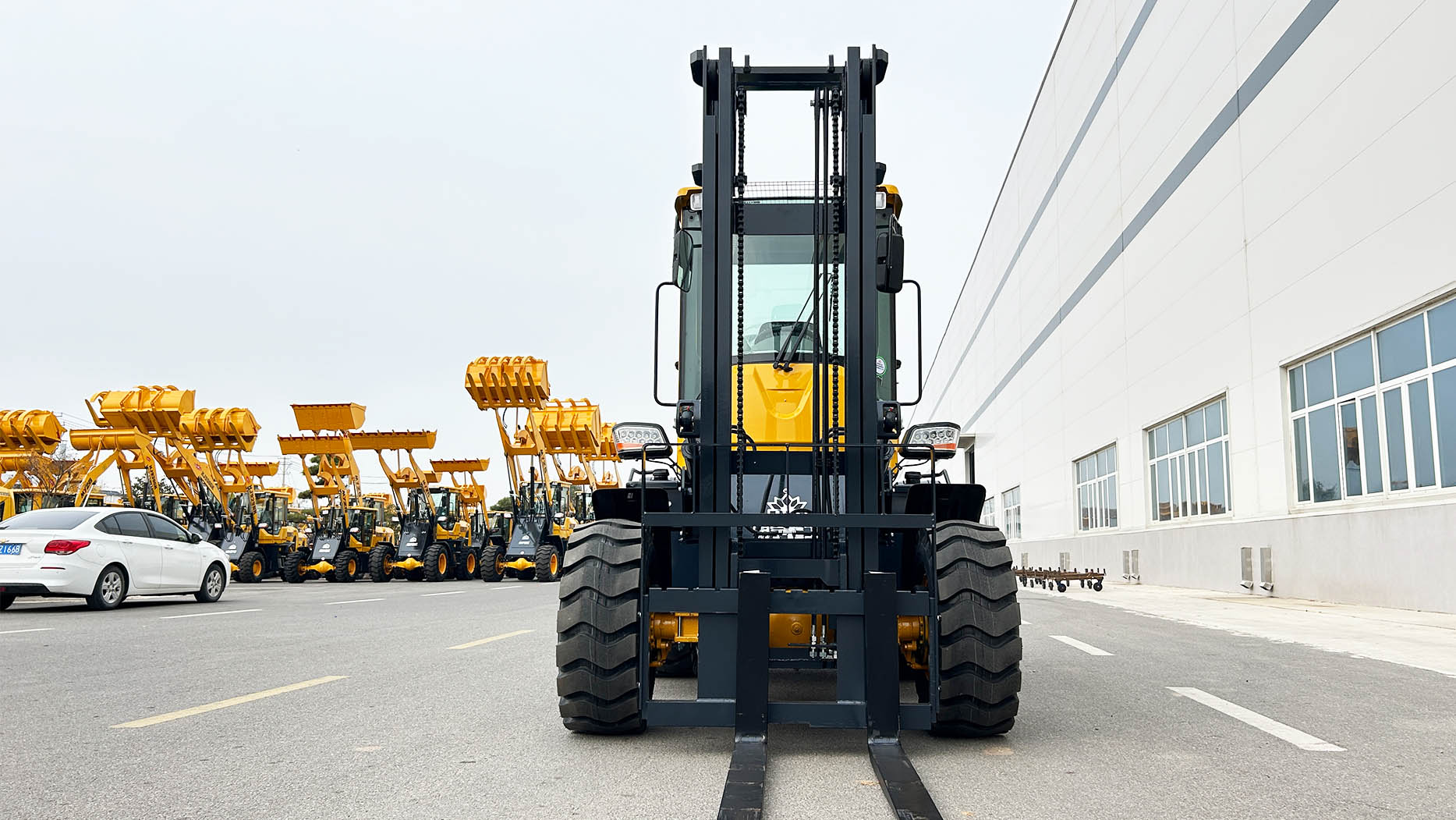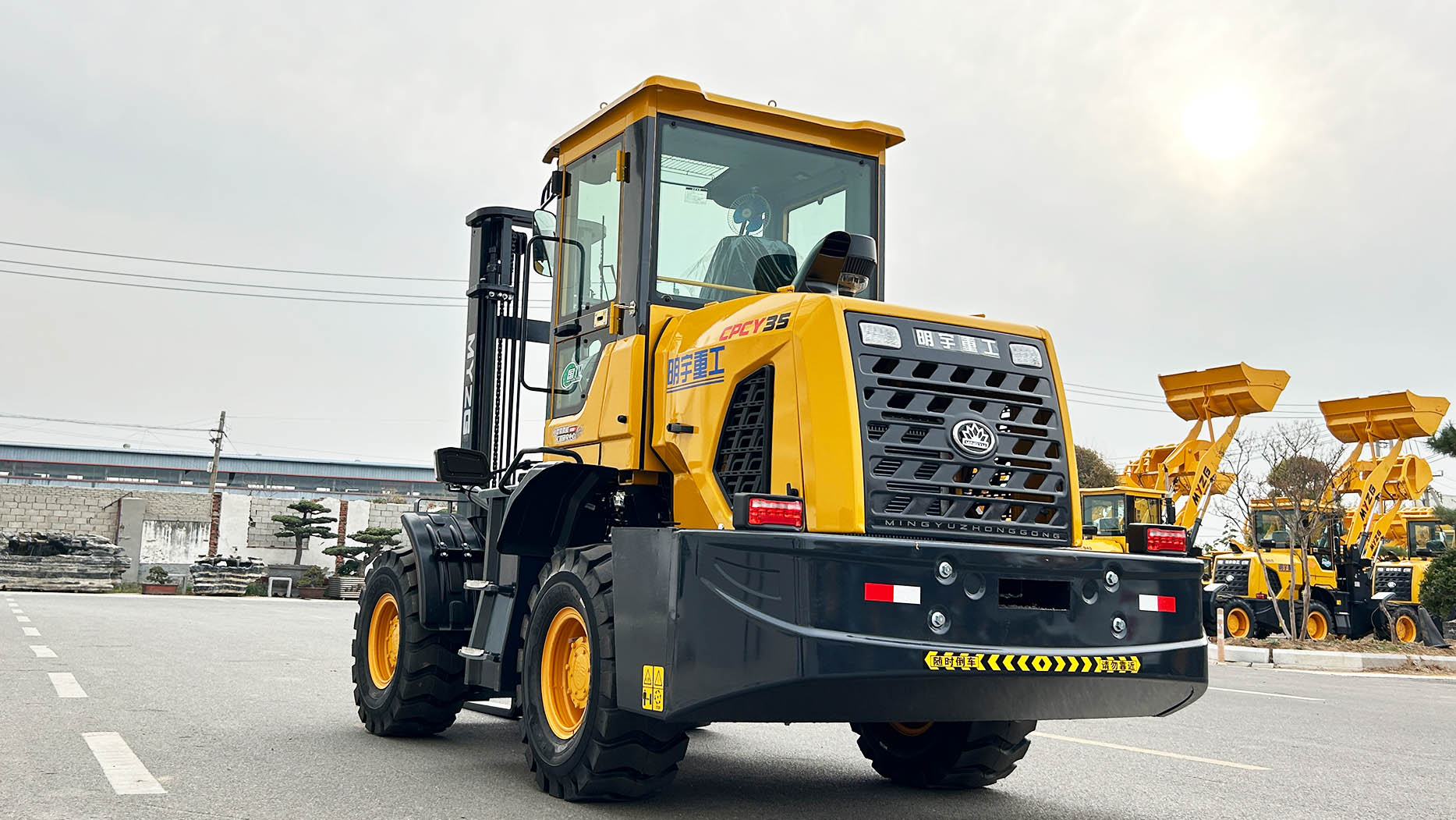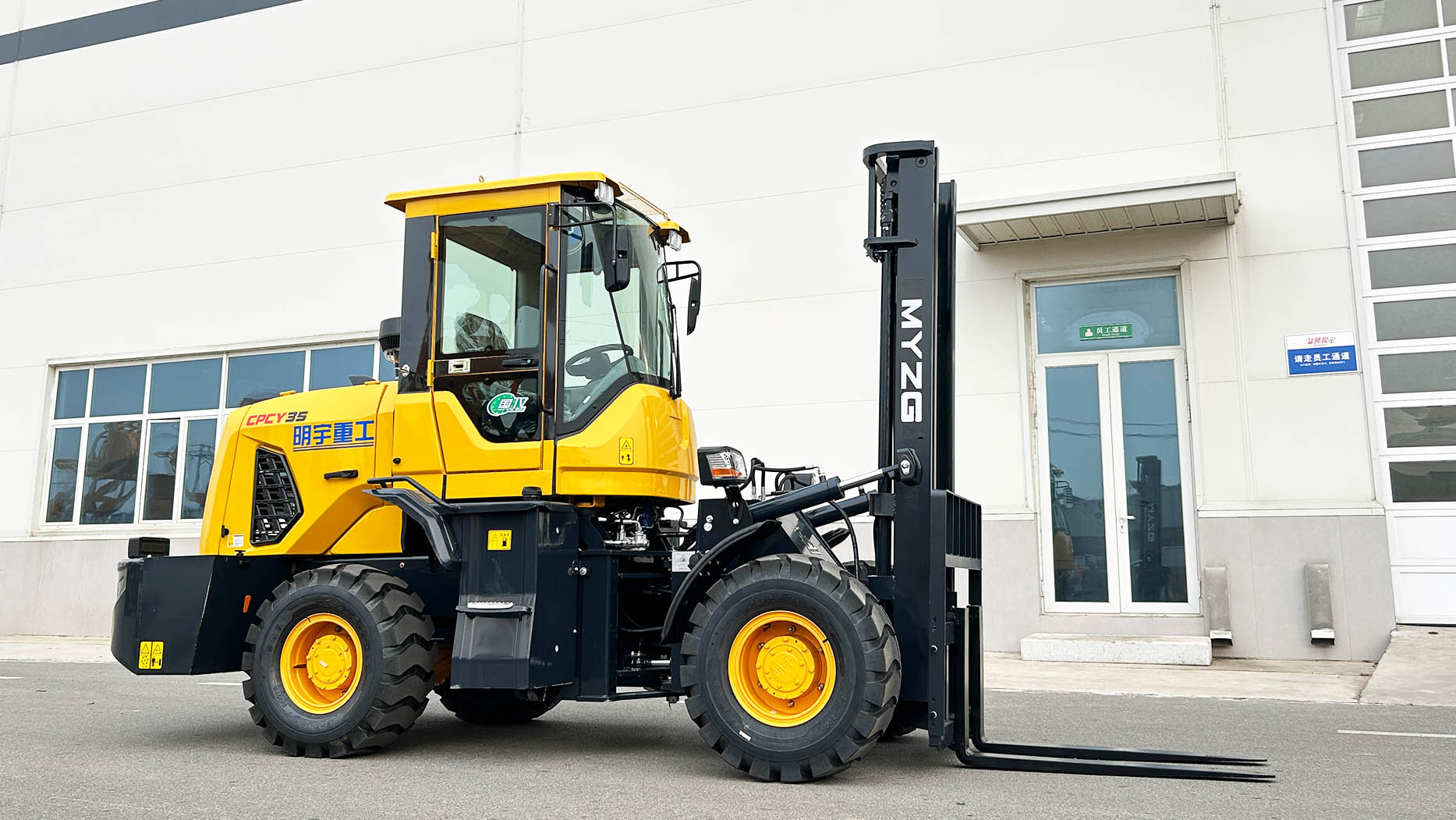While standard warehouse forklifts are indispensable for indoor logistics, a different breed of material handling equipment steps up when the terrain turns challenging: the off-road forklift. Engineered with robust chassis, superior ground clearance, and enhanced traction, these specialized machines thrive in environments where paved surfaces are a luxury and stability is paramount. From the uneven ground of construction sites to the muddy expanses of agricultural fields, off-road forklifts are the workhorses that ensure materials keep moving, no matter how rugged the conditions.
Understanding the main applications for these versatile machines is crucial for industries facing unique material handling challenges. They bridge the gap where traditional forklifts can't operate and larger, more cumbersome equipment might be overkill, offering a flexible and powerful solution for lifting, moving, and placing heavy loads across demanding landscapes.
Key Industries and Applications for Off-Road Forklifts
The adaptability of off-road forklifts makes them invaluable across a broad spectrum of industries. Here are some of their primary applications:
1. Construction Sites
This is arguably the most prominent application for off-road forklifts. Construction sites are characterized by constantly changing, often unpaved, and rough terrain.
Material Distribution: Lifting and moving heavy building materials such as lumber, bricks, concrete blocks, scaffolding, rebar, and insulation across uneven ground to various work areas.
Site Organization: Unloading trucks of supplies and organizing materials on site, ensuring they are accessible to crews without blocking pathways.
Rough Terrain Navigation: Their robust tires and suspension (often 4WD for superior traction) allow them to navigate mud, gravel, sand, and inclines that would stop a standard forklift cold.
Specialized Tasks: Positioning heavy equipment components, moving generators, or handling large tools on site.

2. Agriculture and Farming
Modern farming operations rely on efficient material handling, often in challenging outdoor conditions.
Harvest Handling: Moving large bales of hay or straw, bins of produce (e.g., potatoes, onions), and feed bags across fields and into storage.
Livestock Operations: Transporting feed, bedding, and supplies around barns and pastures.
Equipment Loading/Unloading: Assisting with the loading and unloading of farm machinery and implements.
Barn and Field Work: Maneuvering on soft soil, muddy conditions after rain, or uneven terrain in barns and outdoor storage areas. A diesel forklift is often preferred here for its power and ability to operate continuously.
3. Lumber and Timber Yards
Handling heavy, often uneven, timber products requires robust and stable equipment.
Log and Lumber Handling: Moving freshly cut logs from trucks to processing areas, or transporting finished lumber bundles within the yard or to loading docks.
Rough Yard Navigation: Operating on unpaved, often debris-strewn yards, where traction and puncture resistance are vital.
High Stacking: Lifting heavy timber bundles to significant heights for efficient storage.
Outdoor Exposure: Designed to withstand continuous outdoor use in all weather conditions.
4. Mining and Quarrying Operations
These are some of the most demanding environments for any machinery, and off-road forklifts play a key role.
Material Handling: Moving raw materials, equipment, and supplies around rugged mine or quarry sites.
Support for Heavy Machinery: Assisting with maintenance tasks on larger mining equipment by lifting components.
Extreme Conditions: Built to operate reliably in dusty, rocky, and often remote locations. A powerful forklift 3 ton diesel or larger model is common here.
5. Event Management and Festivals
Large outdoor events often require moving heavy equipment and supplies across varied ground.
Setup and Teardown: Transporting stages, lighting rigs, sound equipment, temporary structures, and seating across grassy fields or gravel lots.
Logistics Support: Moving catering supplies, waste bins, and other operational necessities throughout the event grounds.
Versatility: Their ability to operate on temporary ground coverings or natural terrain is invaluable.
 6. Military and Humanitarian Aid Operations
6. Military and Humanitarian Aid Operations
In situations where infrastructure is damaged or non-existent, off-road forklifts are critical for logistics.
Logistical Support: Unloading cargo from transport planes or ships in remote areas.
Material Distribution: Moving supplies, medical aid, and equipment across challenging landscapes to areas in need.
Robustness: Designed for reliability and minimal breakdown in harsh, unpredictable environments.
7. Recycling and Waste Management
Handling large volumes of often irregular and heavy waste materials, usually in outdoor yards.
Waste Sorting and Loading: Moving sorted recyclables, bulky waste, and debris.
Uneven Surfaces: Operating on ground that can be uneven, dirty, or littered with sharp objects.
Demanding Cycles: Performing continuous heavy lifting and pushing tasks.
8. Remote Industrial and Manufacturing Sites
Facilities that are not located on perfectly paved grounds.
Outdoor Storage: Managing inventory stored in outdoor yards or annexes.
Material Transfer: Moving goods between different buildings or outdoor processing areas.
Specialized Handling: Transporting oversized components or materials for manufacturing that originate or are stored outdoors.
The Role of Specific Features and Brands in Off-Road Applications
The effectiveness of an off-road forklift in these applications is often enhanced by specific features and the reliability of the brand.
Diesel Forklifts: The overwhelming majority of off-road forklifts are diesel forklift models. Their powerful engines provide the necessary torque and sustained performance for heavy lifting and continuous operation in demanding conditions. They also handle extreme temperatures better than electric variants.
4WD Capability: While some applications might manage with 2WD, the most challenging terrains necessitate a 4WD off-road forklift for superior traction and stability on slippery, muddy, or steeply inclined surfaces. This is a common requirement in construction, mining, and some agricultural settings.
 High Ground Clearance and Large Tires: Essential for navigating obstacles, ruts, and debris without getting stuck or damaging the undercarriage.
High Ground Clearance and Large Tires: Essential for navigating obstacles, ruts, and debris without getting stuck or damaging the undercarriage.
Robust Chassis and Mast: Built to withstand the stresses of uneven loads and rough travel.
Specialized Attachments: Beyond standard forks, attachments like buckets, grapples, and rotators further enhance their utility in these diverse applications.
Brands like MYZG: Manufacturers like MYZG play an increasingly important role by offering a range of robust and cost-effective off-road forklifts. Their models, including a capable forklift 3 ton diesel version and even a mini forklift for tighter outdoor spaces, provide accessible solutions for businesses that need durable equipment without the premium price tag of some top-tier global brands. This allows a wider array of companies to access the benefits of off-road material handling.
Why Off-Road Forklifts are Indispensable
The specialized design of off-road forklifts offers several key benefits for these applications:
Versatility: Performs both lifting and transportation tasks across varied terrains, reducing the need for multiple machines.
Productivity: Ensures continuous material flow even in challenging environments, preventing bottlenecks and keeping projects on schedule.
Safety: Designed for stability on uneven ground, reducing the risk of tipping or accidents inherent with using standard forklifts in unsuitable conditions.
Durability: Built to withstand harsh operating environments, minimizing downtime and extending service life.
Cost-Effectiveness: While a significant investment, they prevent the need to purchase more specialized, single-purpose heavy equipment for each challenging task.
In conclusion, off-road forklifts are far more than just standard forklifts with bigger tires. They are purpose-built machines designed to excel in the most demanding and unconventional material handling environments. From the heavy lifting on a construction site with a forklift 3 ton diesel to navigating a muddy farm with a 4WD off-road forklift, or the nimble operation of a mini forklift in a constrained outdoor yard, these robust vehicles are essential for ensuring productivity and safety. Brands like MYZG continue to make these vital machines accessible, empowering businesses across numerous sectors to conquer challenging terrains and efficiently manage their materials.
Post time:Jun.23.2025
